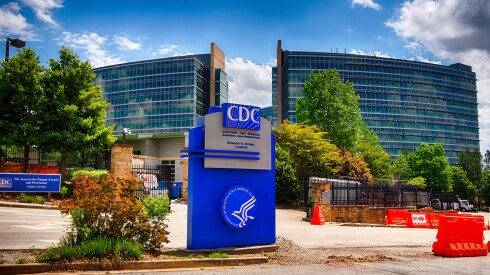Latest News
Data exchange between states, hospitals and the CDC increased temporarily during the pandemic. The public health community wants this to mark the turning point in achieving a permanent national system.
Governments have more than a million job vacancies. Many of those positions need the kind of problem-solving that tech workers are likely to embrace and excel at.
While some have predicted economic returns of $150 million or more, economists predict that those numbers are inflated. Last time the Democratic National Convention came to Chicago, the city spent $60 million to prep for the event.
City officials are launching the “Heat Relief 4 L.A.” campaign to inform residents of the dangers of extreme heat, install more cooling centers and hydration stations and invest in cool pavement projects and trees.
A debt-ceiling breach would cost states in terms of revenue, pension investment losses and increased borrowing costs. Even a fix at this point will likely lead to cuts in federal grants.
In a legislative first, the Land of Enchantment has committed to an earth-bound scent.
The more than 1.6 million preventable deaths of Black Americans documented in a new study reflect racism and discrimination in housing, education, employment and health care. We have the money and the means to do something about it.
Under Gov. Ron DeSantis, Florida has one of the highest rates of uninsured residents in the country and it continues to reject federal Obamacare money to insure more low-income residents.
State lawmakers are considering legislation that would reallocate hundreds of millions of dollars from K-12 and higher education into a new savings account and would cap future education budget increases to no more than 5 percent.
About one-fifth of U.S. workers are family caregivers and nearly one-third have quit a job because of their caregiving responsibilities. While remote work offers more flexibility, it’s no substitute for long-term care policy solutions.
Revenues are slowing but lawmakers, at least in red states, have continued to enact major tax cuts this year.
Popularly referred to as “the eighth wonder of the world,” the bridge was, at the time of its construction, the largest suspension bridge in the world. Today, it connects New Yorkers with their past and each other.
Smart Growth America is restarting its annual reports on the best policies to promote safe and accessible streets. Howard County, Md., got a perfect 100.
Eight states this year have left and three more may soon leave the cooperative that seeks to maintain accurate voter registration rolls. Experts worry it's part of a larger trend away from nonpartisan election administration.
The bill would have given young offenders the opportunity to apply for parole after 30 years in prison, a full 10 years less than the law currently allows. State Sen. Drew Springer’s bill will not advance after he explained it wrong.
Momentum for a four-day workweek has been building and some companies have begun to implement the schedule. Employers and employees have found success with the model and may never go back to the traditional five days.
It’s a trend that started before the pandemic, and it isn’t slowing down, thanks in part to hefty price increases for housing.
Traditional approaches to the kinds of complex issues governments face stymie creative work. Houston has been making significant progress on reducing homelessness with a process of bridge building among stakeholders.
Income tax and sales tax revenue projections are slipping. State and local policymakers need to avoid fiscal giveaways and gimmicks, and they need to beware of potential federal aid clawbacks.
The reductions would surpass 10 percent of the total water use in the lower Colorado River basin: More than 1.5 million acre-feet would be conserved by the end of next year, according to the plan.
Some paint him as a moderate and note his friendly demeanor sharply contrasts with far-right politicians such as Donald Trump. But critics say the governor has consistently shown himself to be cut from the same cloth.
Eric Adams’ accusations that the “national government has turned its back” on the city have enraged top Biden aides. They reportedly view Adams as grandstanding without weighing the political consequences for the president.
The Mississippi city's Mayor Toby Barker recalls the highs and lows of navigating COVID-19's delta and omicron waves.
Too many election administrators and polling-place workers are the subject of harrassment, threats and even violence, and they’re quitting in droves. If we don’t protect them, who is going to be left to work our elections?
Though Black people only make up 5 percent of the state’s population, they accounted for 21 percent of new HIV diagnoses in 2021, a disparity fueled by discrimination, community distrust and lack of access.
The origins of the sixth president’s pathetic quest for greatness and his sacrifice of happiness during a lifetime of service.
One-quarter of adults in the United States have some kind of disability. Are government agencies doing enough to serve their citizens equally — and ensure their safety in emergency situations?
Turnover is increasing and gender gaps are barely budging, but accurately assessing the consequences remains a challenge.
Police officials are unable to access physical and digital evidence due to storage issues that are impacting trial proceedings for several cases, including a ransomware attack against the city, now stretching into its third week.
Seattle, Houston, Atlanta and Tucson, Ariz., are among a small number of cities that lost population in the pandemic but now have more people than a decade ago. Finding those residents housing is a challenge, however.
Sponsored
-
Sponsored
Most Read















































